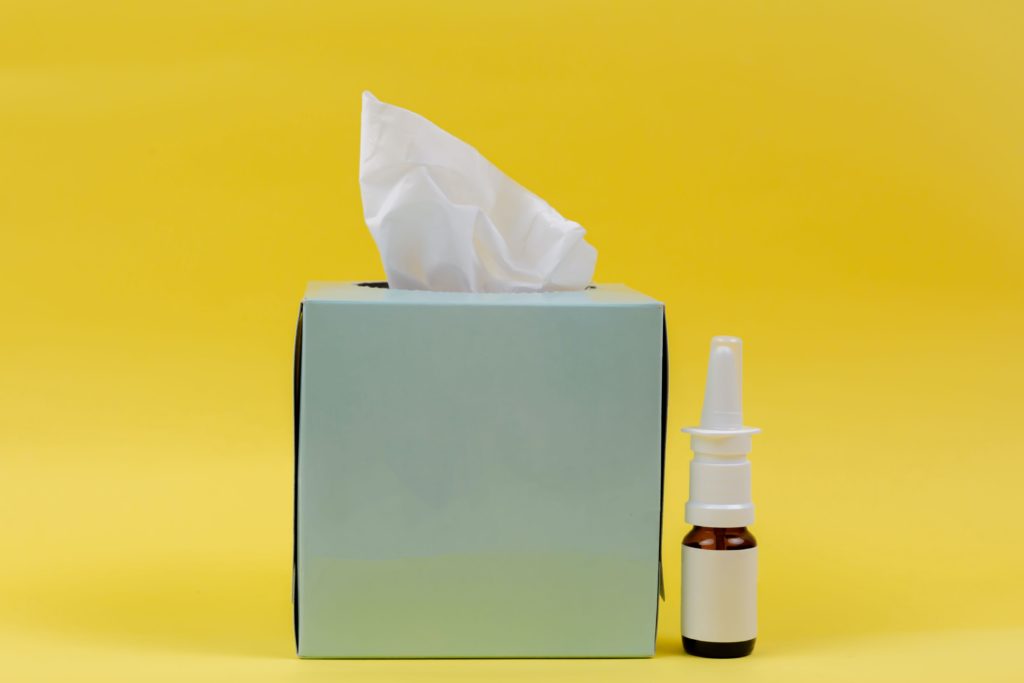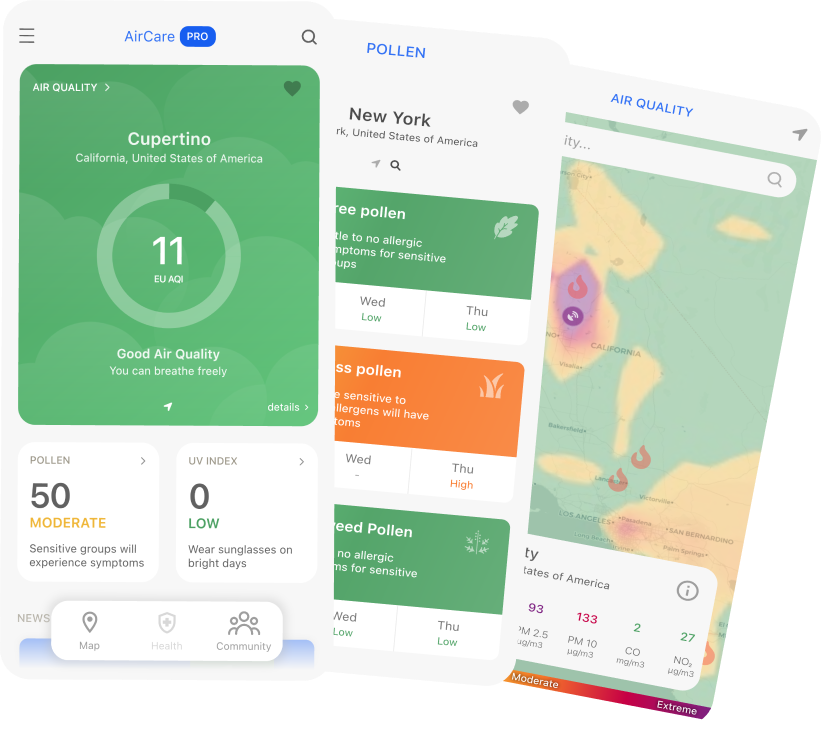You might have heard the phrase “allergy season is coming”, but what does that exactly mean? When does it start and end? Let’s cover everything you need to know when it comes to allergy season.
What Are Seasonal Allergies?
Allergies that happen in a particular season are more commonly known as hay fever. According to the Asthma and Allergy Foundation of America, approximately 24 million people in the US were diagnosed with hay fever in 2018.
Hay fever occurs when your immune system has an overreaction to an outdoor allergen.
The most common allergens are pollen from wind-pollinated plants, such as weeds, grasses, and trees. The pollen from plants pollinated by insects is less likely to trigger an allergic reaction because it’s too heavy to remain airborne for too long.

Some common seasonal allergy symptoms and signs include:
- Itchy nose
- Runny nose with thin, clear nasal discharge
- Stuffy nose
- Watery eyes
- Itchy, red eyes
- Swelling around the eyes
- Sneezing
- Itchy throat
- Swelling of the airways/mouth
- Dry, scaly skin
Less common symptoms include:
- Coughing
- Wheezing
- Shortness of breath
- Headache
Many people who have seasonal allergies also have asthma. If you have both of these conditions, your seasonal allergies might trigger an asthma attack.
When Is Allergy Season?
Allergy season depends on where a person lives and what they’re allergic to. Different plants emit pollen at different times of the year, and you might also react to indoor allergies. For instance:
? Spring allergies – Spring allergy season can start in February and last through the summer. It depends on when weeds, grasses, and trees begin pollinating, as well as geographic location.
☀️ Summer allergies – As weeds and grasses continue to produce pollen, allergy season can continue into the summer months.
? Fall allergies – The fall season can be especially challenging for people allergic to mold since mold spores thrive in damp locations such as rotting wood, dirt, and fallen leaves.
❄ Winter allergies – Winter allergy season can worsen from November to January due to increased exposure to indoor allergens such as animal dander, dust mites, and mold.
Seasonal allergies are less common during the winter months, but it is possible to experience allergies year-round.
Tips for Preparing for Allergy Season
If you feel like you’re always getting sick, it’s time to see an allergist. With your allergist, you can devise a strategy for managing your allergies.
The best treatment for seasonal allergies is avoiding allergens that trigger symptoms for you. Consider some of the following steps:
- Keep doors and windows shut in your home and car during allergy season.
- Monitor pollen and mold counts.
- Take a bath and change your clothes after you’ve been outdoors.
- Wear an N-95 filter mask when doing outdoor chores such as lawn mowing.
- Instead of ceiling fans, use an air conditioner with a HEPA filter to cool your home in summer.
- Avoid cigarette smoke since it worsens hay fever symptoms.
When you can’t avoid your allergens, medications are also available to help you with hay fever symptoms.
If you’re running out of tissues faster than usual, you’ll be excited to hear that the AirCare team is working on a new feature that will help you keep your pollen allergy under control. Stay tuned to find out what this feature is!
Do you want to know the quality of the air you breathe? Download AirCare – our free mobile app that tracks air pollution from your pocket, and check out the AirCare blog!





